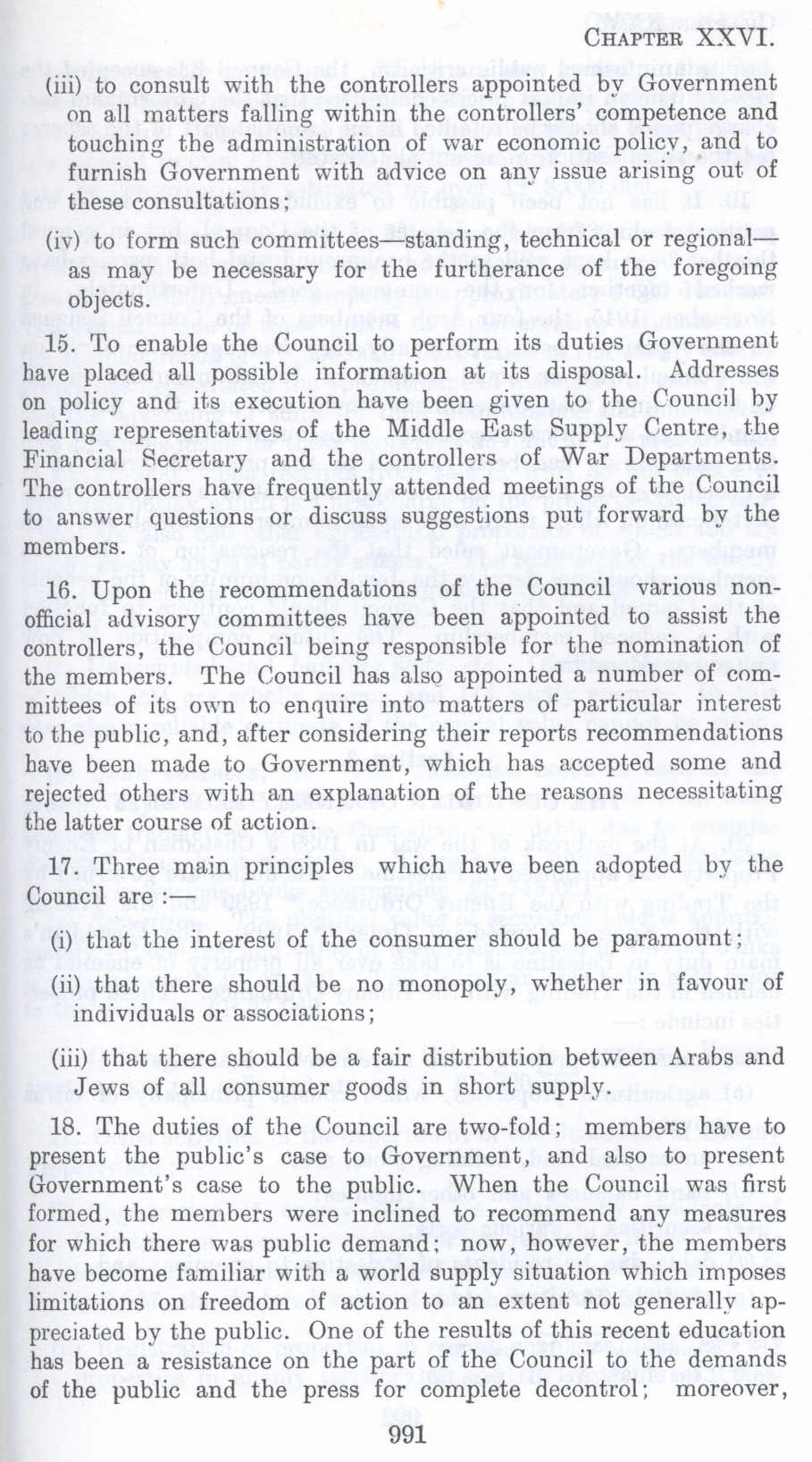| Prev | Next |  |
| Prev | Next |
| PalestineRemembered | About Us | Oral History | العربية | |
| Pictures | Zionist FAQs | Haavara | Maps | |
| Search |
| Camps |
| Districts |
| Acre |
| Baysan |
| Beersheba |
| Bethlehem |
| Gaza |
| Haifa |
| Hebron |
| Jaffa |
| Jericho |
| Jerusalem |
| Jinin |
| Nablus |
| Nazareth |
| Ramallah |
| al-Ramla |
| Safad |
| Tiberias |
| Tulkarm |
| Donate |
| Contact |
| Profile |
| Videos |
British Mandate: A Survey of Palestine: Volume II - Page 991 |
Disclaimer
The above documents, article, interviews, movies, podcasts, or stories reflects solely the research and opinions of its authors. PalestineRemembered.com makes its best effort to validate its contents.


Post Your Comment
*It should be NOTED that your email address won't be shared, and all communications between members will be routed via the website's mail server.
(iii) to consult with the controllers appointed by Government on all matters falling within the controllers' competence and touching the administration of war economic policy 1 and to furnish Government with advice on any issue arising out. of these consultations;
(iv) to form such committees-standing, technical or regional as may be necessary for the furtherance of the foregoing objects.
15. To enable the Council to perform its duties Government have placed all possible information at its disposal. Addresses on policy and its execution have been given to the Council by leading representatives of the Middle East Supply Centre, the Financial Secretary and the controllers of War Departments. The controllers have frequently attended meetings of the Council to answer questions or discuss suggestions put forward by the members.
16. Upon the recommendations of the Council various nonofficial advisory committees have been appointed to assist the controllers, the Council being responsible for the nomination of the members. The Council has also appointed a number of committees of its own to enquire into matters of particular interest to the public, and, after considering their reports recommendations have been made to Government, which has accepted some and rejected others with an explanation of the reasons necessitating the latter course of action.
17. Three main principles which have been adopted by the Council are :-
(i) that the interest of the consumer should be paramount;
(ii) that there should be no monopoly, whether in favour of individuals or associations;
(iii) that there should be a fair distribution between Arabs and Jews of all consumer goods in short supply.
18. The duties of the Council are two-fold; members have to present the public's case to Government, and also to present Government's case to the public. When the Council was first formed, the members were inclined to recommend any measures for which there was public demand: now, however, the members have become familiar with a world supply situation which imposes limitations on freedom of action to an extent not generally appreciated by the public. One of the results of this recent education has been a resistance on the part of the Council to the demands of the public and the press for complete decontrol; moreover,
991